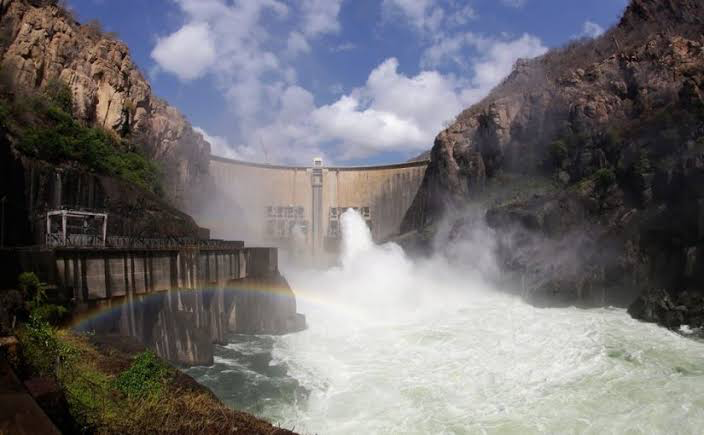Mozambique has announced its plan to terminate a long-standing hydropower agreement with South Africa, a move that could have serious implications for both countries’ economies and energy security.
According to a leaked document obtained by Bloomberg, Mozambique’s energy transition strategy outlines the intention to reclaim the 1,150 megawatts of electricity it currently exports to South Africa from its Cahora Bassa dam, the third-largest hydropower plant in Africa.
The document states that the main short-term priority is to repatriate the electricity when the contract expires on December 31, 2030, and use it for domestic consumption and industrial development.
Mozambique’s energy ministry did not respond to requests for comment, but sources close to the government confirmed the authenticity of the document.
The decision poses a challenge for South Africa, which is already struggling with power cuts and an unreliable grid. South Africa’s state-owned utility Eskom relies on Mozambique’s hydropower to supplement its coal-fired plants and meet the demand of its customers, including the Mozal aluminium smelter near Maputo.
Mozal, operated by South32 Ltd., is the second-largest aluminum producer in Africa and accounts for about half of Mozambique’s exports. The smelter uses about 900 megawatts of electricity, which Eskom buys from Mozambique and then sells back to Mozal.
The arrangement has been in place since 1979 when the Cahora Bassa dam was completed with the help of South Africa’s apartheid regime, which also controlled the transmission lines. The dam was a source of contention during Mozambique’s civil war, as rebels frequently sabotaged the power supply to South Africa.
Mozambique regained full ownership of the dam in 2007, after paying off its debt to South Africa. Since then, the country has been seeking to diversify its energy mix and attract investment in renewable sources such as solar, wind, and gas.
The energy transition strategy, which is yet to be published, states that Mozambique aims to increase the share of renewable energy in its total capacity from 66% to 77% by 2030, and to 100% by 2050.
It also envisions using clean energy to power industrial parks and add value to its production of green minerals such as lithium and graphite, which are in high demand for electric vehicles and batteries.
The document acknowledges that important decisions will have to be made regarding the future of the Cahora Bassa dam and its clean-energy trading partners. It suggests that Mozambique could negotiate a new deal with South Africa or other countries in the region, or sell its electricity on the open market.
However, it also warns that Mozambique’s grid is not linked nationally and that significant investments will be needed to upgrade the infrastructure and ensure reliable and affordable power for all.
South Africa, meanwhile, faces the risk of losing a cheap and clean source of electricity, which could hamper its efforts to reduce its carbon footprint and avoid potential tariffs from the European Union, which is planning to impose a carbon border adjustment mechanism on imports of carbon-intensive goods such as aluminium.
Eskom said it was unaware of Mozambique’s desire to not renew the contract, and that it was working closely with Mozambique’s power utility, Hidroeléctrica de Cahora Bassa, to ensure a stable and mutually beneficial relationship.
South32 said it was also in talks with Eskom, Hidroeléctrica de Cahora Bassa, and the Mozambican government to extend its supply agreement beyond 2026, as there were no viable alternative suppliers of renewable energy at the necessary scale.
Both Eskom and South32 said they were committed to supporting Mozambique’s development and exploring opportunities for collaboration in the energy sector.
Analysts said that Mozambique’s plan to end the hydropower pact was not surprising, given its growing energy needs and ambitions, but that it would require careful negotiation and planning to avoid negative consequences for both countries.
They also said that the move could create an opportunity for regional cooperation and integration, as well as for innovation and investment in renewable energy solutions.
Source: Bloomberg



